(Click player above to listen)
6 Minutes or Less: The Oxygen-COVID Discovery
This newsletter-only feature will be available only to paid subscribers: I ask a thought leader or expert to educate/enlighten/explain an issue via audio in 6 Minutes or Less.
Issue: Doctors made the incredible discovery that putting COVID patients on their stomachs significantly reduced the need to intubate and should cause a logarithmic collapse in the resources needed to be thrown at COVID for intubation going forward.
Question: How did we make the remarkable shift?
Guest: Dr. Richard Levitan is an emergency room doctor and entrepreneur, who spent 10 days at New York’s Bellevue Hospital at the height of the surge and helped make the incredible discovery. He described his experience in the New York Times.
Housekeeping:
Welcome to the Weekender — a combination of news, profiles, and good reads that you might not see during the week.
Founding Member Rate: Like the newsletter? During this trial period, you 50% off the regular cost. Continued thanks to everyone who already has done so!
The World
After a night marred by clashes and looting despite curfews and National Guard troops in the streets, cities across the country assessed the damage and looked for answers to the escalating unrest. In Philadelphia, a peaceful demonstration by thousands gave way over hours to anger and vandalism, and police reported 109 arrests as of early Sunday morning. In the Twin Cities, security forces moved aggressively to disperse protesters with tear gas, pepper spray and drawn weapons. In Georgia, Gov. Brian Kemp ordered additional National Guard troops to deploy ahead of several potential protests Sunday, as Savannah braced for an unsanctioned rally and the Atlanta curfew was lifted. In London, hundreds defied social-distancing rules to gather in Trafalgar Square to protest. (New York Times, Philadelphia Inquirer, Star Tribune, AJC, The Independent)
President Donald Trump plans to invite Australia, India, South Korea and Russia to join an upcoming Group of Seven meeting, in a move that has stoked speculation that he is trying to form a bloc to contain China. (South China Morning Post)
Beyond Hong Kong, an emboldened Xi Jinping pushes the boundaries. Less than four months ago, Xi Jinping faced the biggest crisis of his leadership — bruised by China’s initial, bungled coronavirus response. He has since pulled off an extraordinary turnaround, gaining ground in areas central to his “China Dream” of a strong unified nation. Meanwhile, the UK widened visa rights offer to almost 3m Hong Kong residents. (Wall Street Journal, Financial Times)
The EU’s chief negotiator warned Boris Johnson that he must keep his promises if he wants to avoid the double economic hit of a no-deal Brexit and the coronavirus pandemic. In an exclusive interview, Michel Barnier accused the prime minister of backsliding on commitments. (The Sunday Times)
Facebook’s decision not to take action against recent posts about mail-in ballots and the Minnesota protests by President Trump is roiling employees, some of whom are calling on executives to reconsider their stance. (The Verge)
NASA astronauts arrived at the International Space Station on the SpaceX spacecraft. (NASA)
Profiles & Reads
Inside Twitter’s decision to take action on Trump’s tweets: A weeks-old policy about virus misinformation laid the groundwork for the social platform’s steps this past week to push back on the president’s posts. (Wall Street Journal)
Steve Buscemi has spent a lifetime playing weirdos and lovable misfits. He also knows a thing or two about anxiety, grief and death. He was hit by a car and a bus as a kid, was once stabbed in a bar fight, volunteered as a firefighter during 9/11, and somewhere along the way became one of the most accomplished film actors of his generation. And then tragedy struck: In 2019, Buscemi lost his wife of over 30 years. (GQ)
China’s move to curtail Hong Kong’s autonomy could have major implications for the tech industry, particularly the cryptocurrency sector, cloud services and tech financing. Venture capitalists and tech companies could shift operations to Singapore. The new rules could also slow the growth of firms such as Amazon and Google, which started offering cloud-computing services in Hong Kong. (The Information)
The Class of 1970 Meets History. Twice. With graduation ceremonies canceled during the Vietnam War, coronavirus now puts off this group’s 50th reunion; “You will never forget your senior year at Grinnell.” (Wall Street Journal)
How the pandemic turned Brené Brown into America’s therapist: But the best-selling author, unapologetic cusser, and fifth-generation Texan would rather not be called that. (Texas Monthly)
The biggest global electricity power demand plunge since the Great Depression is reshaping markets and will continue after nations lift stay-at-home orders. The slowdown is squeezing coal, buoying renewables and foreshadowing the “grid of the future.” (Bloomberg)
America’s Worst Year: The most traumatic year in recent American history—1968—offers some disquieting lessons for the present. (The Atlantic)
How does TikTok work? The story of how 16-year-old Charli D’Amelio became its biggest star may help the rest of us understand. (Washington Post)
Good News
Some law enforcement took a different approach on Saturday.
Camden, NJ:

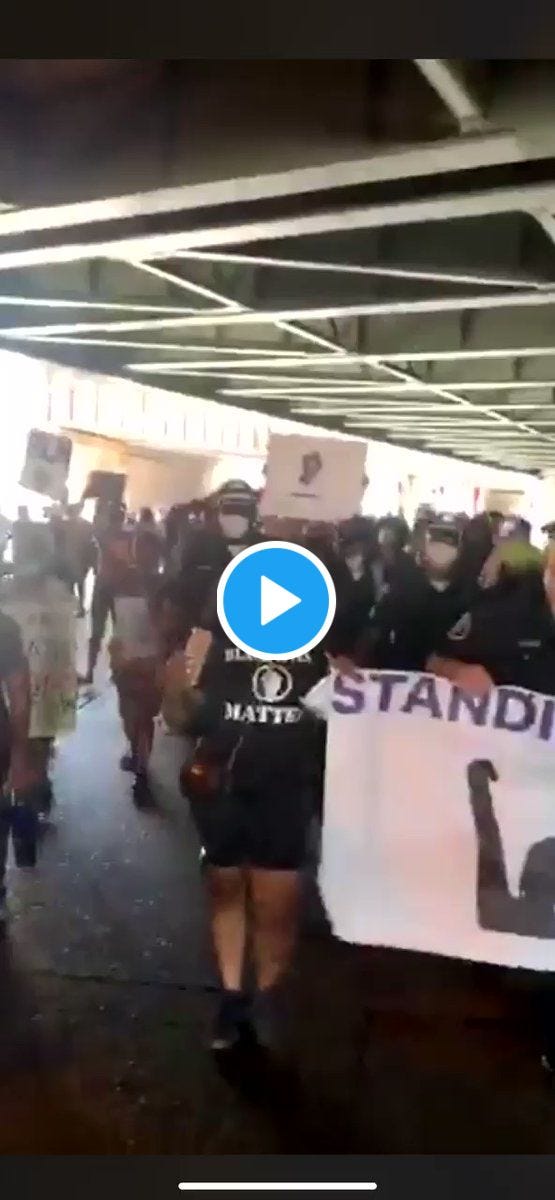
Flint, MI:

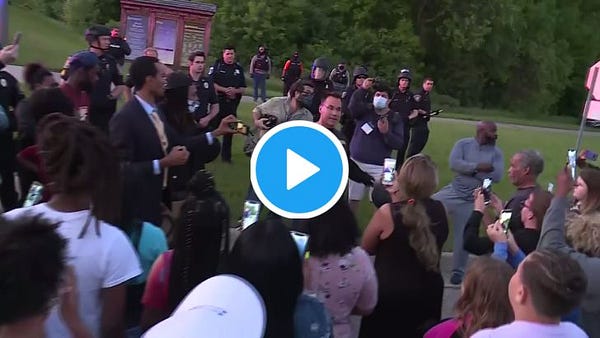
Kansas City, MO:

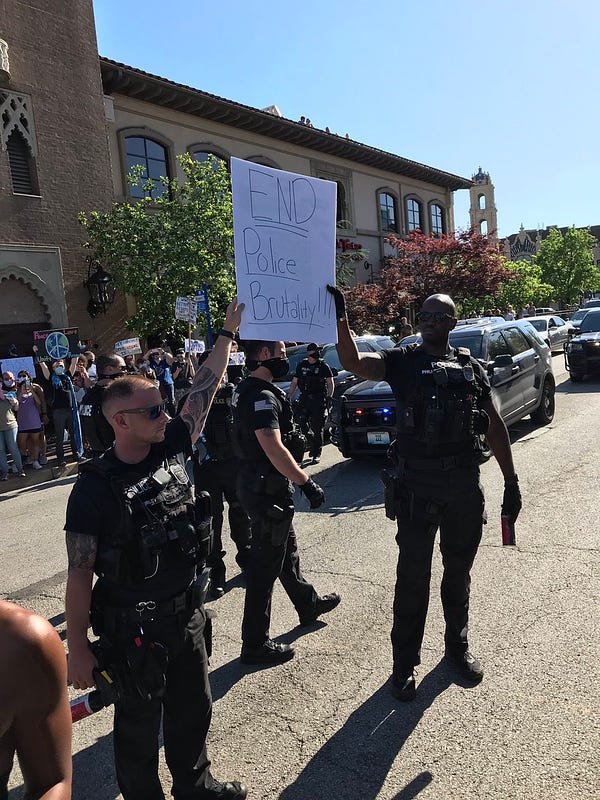
Thanks for reading. Did you like the newsletter? Why not subscribe now?

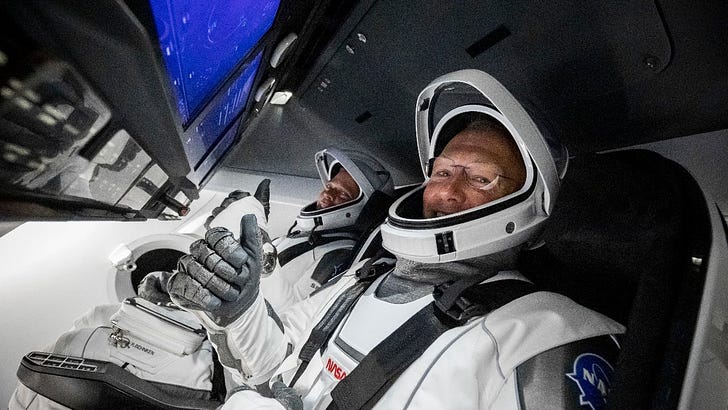

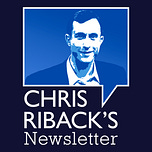
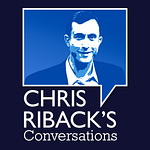

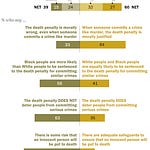

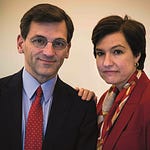

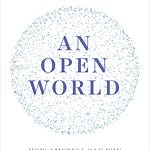
Share this post